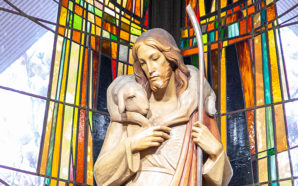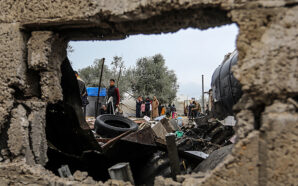Meghan Markle, the Duchess of Sussex, recently shared the story of her miscarriage in The New York Times. “Losing a child means carrying an almost unbearable grief, experienced by many but talked about by few,” she wrote.
I know this grief well. In the course of 12 months, I experienced three miscarriages. My first was on Christmas Day 2016. I had found out I was pregnant on the first Sunday of Advent. As we lit one candle on our Advent wreath at the dinner table, I sang a little song to the tune of “O Come, O Come, Emmanuel” to tell my husband the news. “O come, O come, sweet baby,” I sang off-key. It pains me too much to sing the rest in my head. Even now, singing that song each year brings stinging tears to my eyes.
We had decided to tell my family the good news on Christmas morning. Instead, I woke up and realised I was bleeding. With an emergency call in to my doctor’s answering service, I went to Christmas Mass with my family. I wept quietly through most of the service. I knew what was happening in my body as we sang each song. Surrounded by people and hearing about the birth of Christ, I felt utterly alone.
This deep loneliness stayed with me over the course of my recurrent losses. My first miscarriage robbed me of the pure joy that often comes with seeing a positive pregnancy test. And each subsequent loss pulled me deeper into sadness and anger. I was envious of other women who seemed to conceive with ease. I felt abandoned by the church, which had a lot to say about pregnancy and birth but very little to say about miscarriage and infant loss. I found that most people—from friends and relatives to my local priest—simply did not know how to talk about this with me. So instead, they said nothing.
To continue reading this article, click here.
Britt Luby is an associate chaplain at Texas Christian University in Fort Worth, Texas. Her work focuses on religious literacy and interfaith leadership, grief support for students coping with loss and pastoral care/spiritual development for young adults.
With thanks to America Magazine and Britt Luby, where this article originally appeared.








